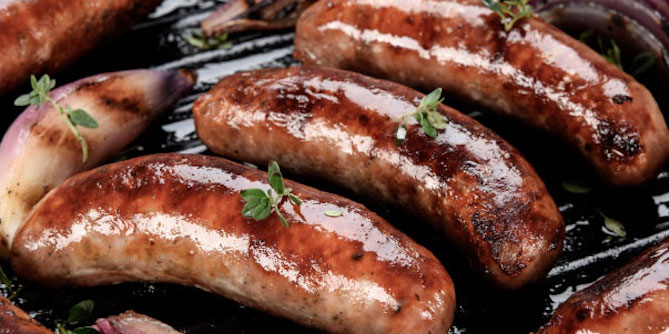Consumers should not be put off eating red meat, a panel of experts has stated, following the latest headlines linking eating products like bacon and ham to cancer.
A study published in the International Journal of Cancer found women who ate high levels of processed meat had a 9% increased risk of the cancer compared with those who ate little of it.
In an article today, the BBC said the research showed regularly eating foods like bacon and sausages may raise the risk of breast cancer and pointed out that the study backs up previous findings of the World Health Organization, which says processed meats cause cancer.
However, the report also noted that experts recommend caution about the findings and say the actual risk for individual women is ‘very small’. The review, which included data on more than a million women, shows a link between processed meat consumption and breast cancer risk, but it’s not clear if the food is actually causing this. There might also have other behaviours that might explain the differences in breast cancer risk, such as being more or less healthy in other ways.
The 15 studies used in the analysis also had different definitions of the highest consumptions. For example, one of the UK studies in the review classed high consumption as more than 9g a day – the equivalent of just two or three rashers a week – while in others it was much higher.
Lead author Dr Maryam Farvid, of the Harvard TH Chan School of Public Health in the US, recommends cutting down on the meat rather than eliminating it, the BBC said.
Prof Robert Pickard, of the Meat Advisory Panel, which describes itself as a group of healthcare professionals, scientists and researchers who provide independent and objective information about red meat and its role as part of a healthy, balanced diet, urged caution on the findings.
He said: “This is an observational study that only serves to give rise to alarmist headlines about processed meat and not to provide any causal link between processed meat and cancer. Consumers should not be put off red meat and continue to enjoy it as part of a balanced diet.
“No single foodstuff is responsible for cancer. It is likely to be a collection of factors including lifestyle choices and genetics.
“Things like consumption of alcohol, smoking and lack of exercise add significantly greater risk to someone developing cancer than anything else.”
The MAP has published facts around red meat and cancer, which can be viewed here, while more about red meat and breast cancer can be found here and here.
Dr Gunter Kuhnle, associate professor in nutrition and health at the University of Reading, who was not involved in the study, said it was ‘questionable’ whether people should lower their red and processed meat consumption on the back of this study, the BBC said. He said the actual risk posed by processed meats was ‘very small’ for the individual and more relevant on a population-wide level.
However, he said the study’s findings should be followed up to investigate the links between processed meat and cancer and see whether the associated risk could be reduced, for example through new food production methods.




